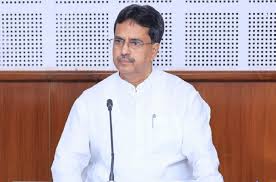‘Section of girls getting involved in drug abuse’: Tripura CM Manik Saha

In a concerning update that reflects the changing face of substance abuse, Tripura Chief Minister Manik Saha has raised alarm about growing drug use among girls in the state. He pointed out that several young women are now injecting drugs, a trend that increases health risks and challenges earlier gender-based assumptions about addiction.
His remarks came during an anti-drug event and have sparked a new discussion across Tripura. The issue now demands urgent attention from policymakers, communities, and families.
More Girls Are Using Injectable Drugs
Tripura has long battled the drug menace due to its location along sensitive border areas. But now, CM Saha says the pattern is shifting. “Earlier, men were mostly affected. But now, we’re seeing girls also injecting drugs,” he said.
Health officials note a direct connection between this rise in intravenous drug use and the spread of HIV in the region. Sharing needles continues to be one of the fastest ways the virus spreads, especially among young people.
This trend shows that addiction is no longer limited to men or older users. Girls are becoming increasingly vulnerable, often due to peer pressure, lack of awareness, or hidden mental health issues.
Tripura’s Zero-Tolerance Approach
The state government has taken a firm stand. It launched a zero-tolerance policy on drug-related crimes. According to CM Saha:
- Drug seizures rose by 106% in 2024 compared to last year.
- The destruction of seized drugs went up by 132%.
- Police teams intensified surveillance at all border points.
Tripura shares a border with Bangladesh, which traffickers often exploit. In response, law enforcement now uses trained dogs, high-tech scanners, and mobile units to stop drug inflow.
Still, CM Saha admits that catching drug peddlers isn’t enough. The government must also focus on those who’ve already fallen into addiction.
New Rehab Centres Across All Districts
To support recovery efforts, the Tripura government has approved plans for de-addiction centres in all eight districts. Each centre will cost around ₹20 crore. The first one is already under construction in Bishramganj.
These centres aim to offer:
- Medical detox services,
- Counselling sessions,
- Skill-building workshops for former users.
CM Saha says the goal is not just to punish, but to help people reclaim their lives. Many addicts want to recover but don’t have access to medical or psychological help. These new centres could change that.
Educating Youth to Prevent Drug Use
Tripura’s government also plans to introduce sex education and HIV awareness in school curriculums for classes VIII to XII. This effort aims to give students clear, science-backed information about addiction and disease prevention.
Teachers and parents will play a key role. If they talk openly about these issues, students are more likely to understand the risks and ask for help if needed.
By teaching children early, the government hopes to prevent addiction before it starts.
Breaking the Silence: Community Involvement Is Crucial
CM Saha’s statement about girls using injectable drugs challenges long-standing gender biases. Addiction isn’t just a “men’s issue” anymore. Everyone is at risk—and the community must respond with care, not judgment.
Families should talk to their children and watch for warning signs. Schools can organize workshops and provide emotional support. Health workers and NGOs can run help lines, host awareness camps, and visit schools and colleges.
To help more girls come forward, we must break the stigma around drug use and mental health—especially for women.
Moving Ahead with a Balanced Strategy
Tripura’s approach combines strong enforcement with health and education. While police crackdowns can reduce supply, long-term change depends on how well the state supports recovery and education.
The government must also invest in mental health programs, training, and job opportunities. These services give people a reason to stay clean and rebuild their lives.
Officials should also keep track of trends and share public data. By measuring what works, they can keep improving policies.
Conclusion: An Urgent Call for Change
Tripura CM Manik Saha has drawn attention to an issue we can’t ignore. Drug use among girls is rising—and with it, the risk of long-term health and social harm.
This isn’t just a law enforcement problem. It’s a human issue that affects families, schools, and communities. We must act now—with compassion, clarity, and commitment.
If we invest in recovery, education, and early intervention, we can help young people—regardless of gender—live healthier and safer lives.






